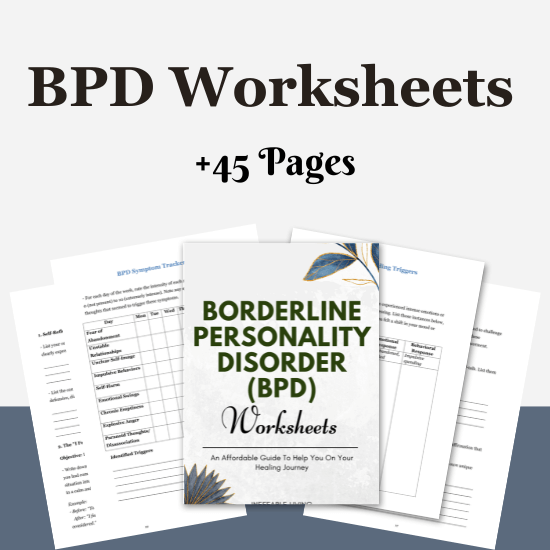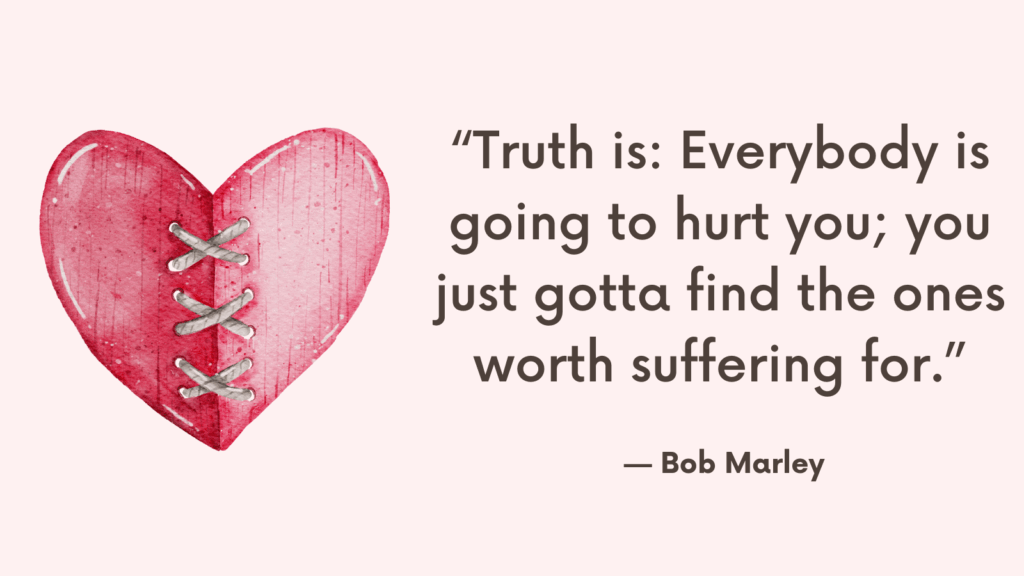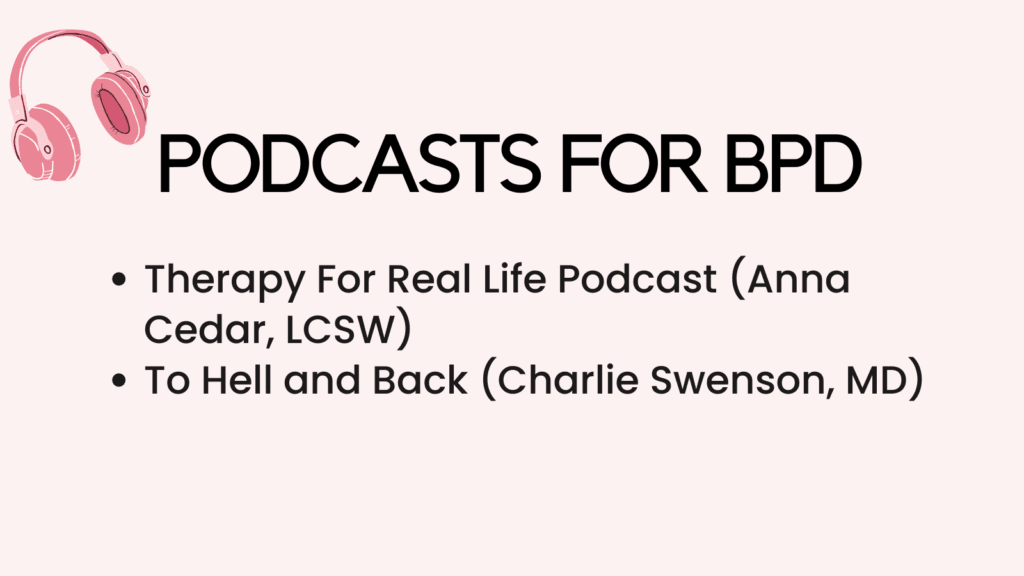Understanding BPD love means looking beneath the surface chaos to see the real feelings driving the behavior.
Can Someone with BPD Love You? Understanding BPD Love
Yes — someone with Borderline Personality Disorder (BPD) can absolutely love you. In fact, people with BPD often love with an intensity that feels all-consuming. But their version of love can be complicated, emotionally raw, and sometimes overwhelming — for both them and the person they care about.
BPD doesn’t stop someone from loving — it affects how they express it, how they experience connection, and how they cope with the vulnerability that real intimacy brings.
1. BPD Love Is Intense and Fearful
Someone with BPD may love hard and fast. They may idealize you, crave closeness, and express affection in overwhelming ways. But that same love is often tangled with fear — the fear that you’ll leave, reject, or stop loving them the moment they slip up. Their love is sincere, but it’s shaped by an undercurrent of emotional panic.
2. Fear of Abandonment Can Sabotage the Relationship
Even if you love them deeply and show up consistently, the fear of abandonment still lingers. This can lead to clinging, emotional outbursts, or “testing” behaviors like starting fights or pulling away first. They may love you with their whole heart — and still push you away because they’re afraid you’ll eventually do the same.
3. Black-and-White Thinking Affects How They See You
People with BPD often struggle with black-and-white thinking. One moment, you’re perfect. The next, you’re the enemy. This switch usually isn’t about you — it’s a defense mechanism rooted in emotional trauma. Even when they lash out, it’s rarely because they stopped loving you — it’s because they feel threatened, hurt, or rejected.
4. Emotional Dysregulation Can Distort Expression of Love
BPD is marked by intense emotional dysregulation. This means someone with BPD may express love one moment and anger the next — not because their love has changed, but because their emotions can shift rapidly. Loving someone doesn’t erase these fluctuations, but with awareness and support, they can learn to manage them.
5. BPD Love Can Be Empathetic and Loyal
Despite the challenges, many people with BPD are incredibly empathetic, loyal, and emotionally attuned. They may sense what you’re feeling before you say a word. They may give everything they have to make you feel loved and understood. When trust is built and safety is felt, their love can be fiercely loyal and deeply meaningful.
Related: What Is Quiet Borderline Personality Disorder?
6. They May Feel Unworthy of Love
Many people with BPD carry deep shame and feel fundamentally broken or unlovable. They may sabotage good relationships because they can’t believe someone could truly love them. If they lash out or withdraw, it may not mean they don’t love you — it may mean they believe you shouldn’t love them.
7. They Can Love You — But It Takes Work
Yes, someone with BPD can love you. But for that love to be healthy and sustainable, it requires effort from both partners. Boundaries must be clear. Emotional safety must be built. Consistency must be practiced. Therapy — especially DBT — can be transformative for helping someone with BPD learn to regulate emotions and build healthier relationships.
If You Love Someone with BPD
1. Learn How BPD Affects Emotions and Relationships
Understanding the condition helps you respond with empathy instead of frustration. BPD is rooted in emotional dysregulation, intense fear of abandonment, and difficulty with identity and self-worth. Their emotional reactions aren’t manipulation — they’re pain. Educating yourself helps you become a calmer, more grounded presence in the relationship.
Related: Best 20 Tips On Dating Someone With BPD Without Becoming A Caretaker
2. Don’t Take Emotional Outbursts Personally
When someone with BPD lashes out, withdraws, or flips from love to anger, it’s usually not about you — it’s about their nervous system going into survival mode. They may say things they don’t mean or act impulsively when triggered. Instead of reacting defensively, take a breath and say, “I see you’re really upset right now — let’s talk when things calm down.”
3. Validate Their Emotions — Even When You Disagree
People with BPD often feel dismissed or misunderstood. Validation doesn’t mean agreeing — it means showing that their feelings make sense from their perspective. Say things like, “I understand this feels overwhelming for you,” or “That reaction makes sense, given how much you care.” Validation soothes their fear of being too much.
4. Set and Stick to Healthy Boundaries
Boundaries are not rejection — they’re a form of love. Without boundaries, the relationship can become chaotic or enmeshed. Be clear about what’s okay and what’s not. For example, “I want to be here for you, but I won’t stay in a conversation if there’s yelling.” Boundaries protect both of you from burnout and resentment.
Related: How to Detach From Someone with Borderline Personality Disorder?
5. Avoid the Role of Fixer or Therapist
You can support them, but you can’t heal them. Don’t try to “rescue” or manage every emotional crisis. Encourage therapy, especially Dialectical Behavior Therapy (DBT), which is the gold standard for BPD. Say, “I care about you, and I believe a therapist could help you more than I can.”
6. Practice Emotional Regulation Yourself
Staying calm during emotional storms is one of the most powerful things you can do. The more regulated you are, the safer they feel. Use grounding techniques, take space when needed, and remind yourself: “I can be present without absorbing everything.” Your calmness can defuse escalation.
7. Be Prepared for Highs and Lows
People with BPD may idealize you and then suddenly devalue you. They may pull you close, then push you away. This emotional intensity is part of the disorder — not a reflection of your worth. Try to stay consistent, even when their view of you changes. Trust is built when you show up calmly again and again.
8. Take Care of Your Own Mental Health
You matter too. It’s easy to get lost in caring for someone with BPD, but you must also care for yourself. Go to therapy. Take time for friends, hobbies, and solitude. Keep your own identity strong. A relationship can’t be healthy if you’re constantly neglecting your own well-being.
9. Know When It’s Too Much
Loving someone with BPD doesn’t mean staying in a relationship that’s emotionally unsafe. If the relationship becomes abusive, manipulative, or drains your mental health, it’s okay to step away. You can love someone and still choose to walk away with compassion and boundaries.
10. Believe in Their Capacity to Heal
People with BPD can change — with the right support and willingness to work on themselves. Your encouragement, patience, and consistency can be part of their healing environment. But the healing has to be their choice. You can’t force it. Trust that love, when combined with structure and support, can be powerful — but never forget that you deserve peace, too.
Related: How to Love Someone with BPD? Top 9 Suggestions

Conclusion
People with BPD absolutely can love — often more deeply and fiercely than most. But their love is filtered through the lens of fear, trauma, and emotional intensity. With patience, compassion, and boundaries, this love can evolve into something grounded and healing. Their love is real. But it must be met with structure and support to thrive.



![BPD Support Groups [Online & In-Person]](https://ineffableliving.com/wp-content/uploads/2022/09/Borderline-Personality-Disorder-Support-Group-1024x576.png)